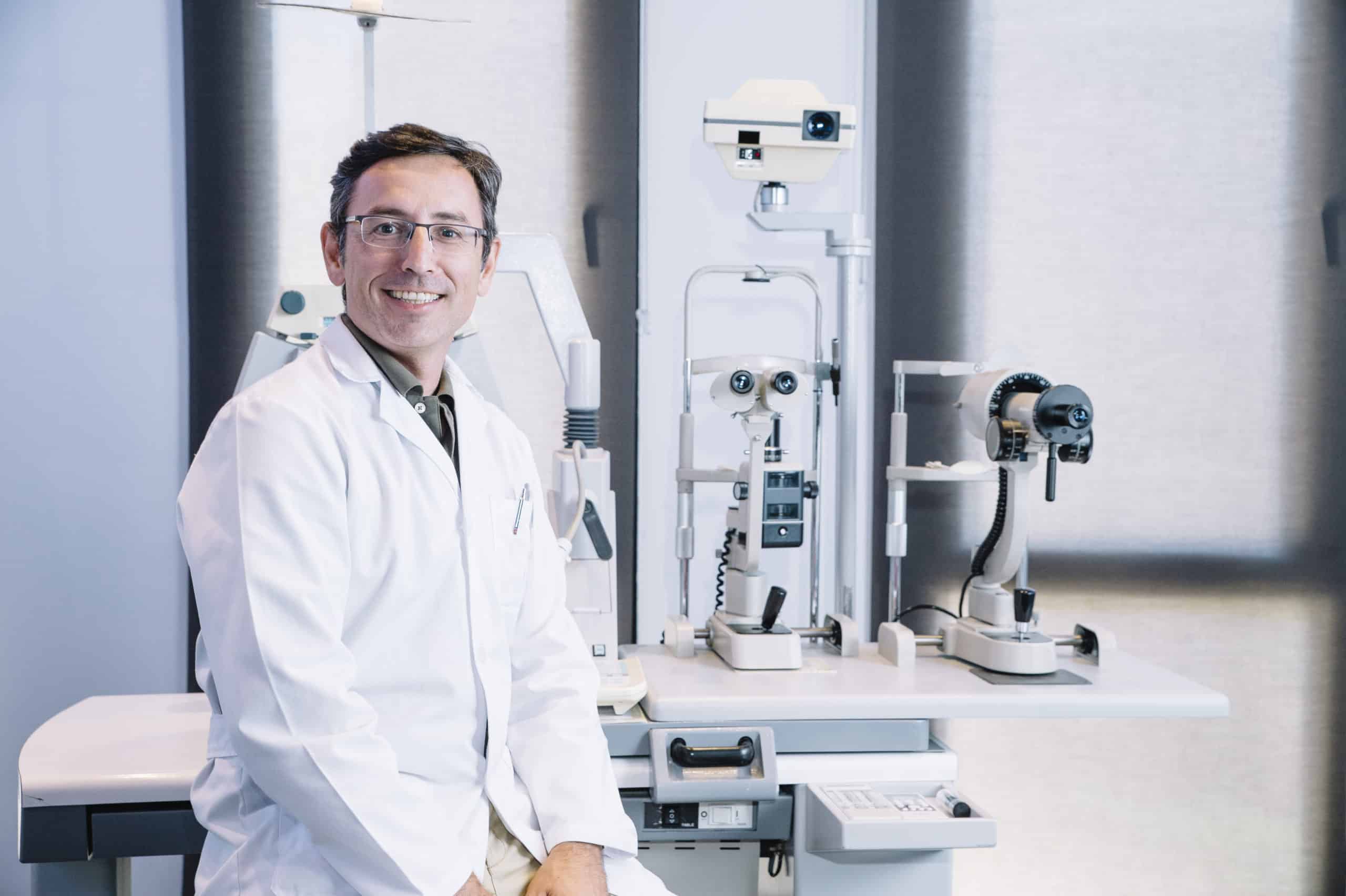Optometrist, Ophthalmologist, Optician — What’s the Difference?
July 1, 2021

Do you know the difference between an ophthalmologist, an optometrist, and an optician? If you’re not sure, you’re not alone. Although they sound the same, there are some key differences between them that matter a great deal when looking for Virginia eye care. Let’s take a look at the meanings behind the titles.
Ophthalmologist
An ophthalmologist is a medical doctor. This means they graduated from medical school, completed an internship, and then followed that with up to eight years of additional training as a specialist in ophthalmology, which is the diagnosis and treatment of diseases of the eye.
Ophthalmologists can prescribe medications and perform eye surgery. There are also subspecialties of ophthalmology. A doctor may treat only conditions relating to certain eye structures, such as the retina or cornea. Some may treat only children. Still, others may specialize in refractive surgery. This involves the correction of myopia (nearsightedness) or hyperopia (farsightedness) or other related conditions.
An ophthalmologist can also prescribe and fit eyeglasses and contact lenses, but not all will offer this service.
Optometrist
An optometrist receives a doctorate degree from a school of optometry after four years of study in the diagnosis and treatment of eye diseases. This eye care professional will have “OD,” which stands for doctor of optometry, after his or her name.
Optometrists test vision, examine eyes and prescribe and fit eyeglasses and contact lenses. They evaluate, diagnose, and treat eye diseases.
Optometrists may perform minor surgery, such as foreign body removal. Optometrists often offer specialized services like low vision aids and contact lenses for special eye problems.
Optician
Opticians typically receive their training through certification programs. They do not have a professional optical degree and are not doctors. However, they are a valuable part of the eyecare profession.
Opticians can fill eyeglass prescriptions and help patients select eyeglass frames. They dispense contact lenses and provide training on how to insert, remove and care for them. They cannot test vision, write prescriptions or diagnose or treat any eye conditions.
Opticians are often part of an optometrist’s or ophthalmologist’s office, but they may also provide services in a free-standing store or boutique.
Not Sure Which One to See?
Here are some tips:
If you have a serious or chronic eye problem, see an ophthalmologist. This is also the professional to see for any kind of eye surgery, such as for cataracts.
If you think your eyeglass prescription has changed, have dry eye, contact lens fitting, medical or you just want a routine eye exam, you can visit an optometrist. If you need more treatment than the optometrist can provide, they will refer you to an ophthalmologist.
If you have an eyeglass prescription that needs to be filled, you need to purchase contact lenses, or your glasses need adjusting, see an optician. An optician can also make additional pairs of glasses for you, as long as you have a valid prescription from an optometrist or ophthalmologist.
Virginia Lasik Ophthalmologists
For full-service eye care in Virginia, contact the team led by opthalmologist Dr. Anh Nguyen. When it comes to Lasik surgery or treatment for diseases of the eye, we are your trusted partner. Contact us by calling (703) 912-0504 or scheduling a consultation online. Our team of eye care professionals is happy to assist you, and we look forward to your call.




